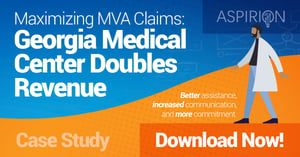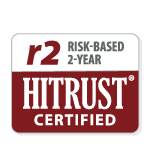When dealing with motor vehicle accident (MVA) claims, the collection rate on third-party liability can be substantially higher than any other payment source—particularly involving patients who have no form of health insurance.
Whether managed in-house or outsourced, third-party liability (TPL) programs often generate additional cash collections, but they rarely attain full reimbursement. Without proper management, they can also create risk—which requires a dependable, capable team to pursue reimbursement. Otherwise, hospitals will face lost revenue and legal challenges. Through our nearly 20 years of experience, we’ve identified the top five mistakes facilities make when managing their TPL programs:
#1: Only Pursuing Liability Coverage
With MVA claims, a first-party element is often available—but many hospitals and vendors only focus on third-party liability. They file liens rather than looking at medical payments or personal injury protection—or they don’t recognize certain injuries as MVA-related. These oversights cost facilities revenue.
#2: Pursuing TPL Instead of Commercial Insurance
When a patient has commercial insurance, intentionally pursuing TPL instead can invite significant legal trouble for hospitals. Some RCM vendors choose to file liability liens and ignore commercial insurance because it gathers more reimbursement—but in the long run, it could result in a lawsuit that costs the hospital billions of dollars.
Want to see how you can increase your revenue from MVA claims by 144%? Read our case study.

#3: Filing and Forgetting
When facilities manage their TPL programs internally, they often have an inordinate number of accounts open. The RCM team files a lien or submits a claim—but they never follow up, so they don’t know when an account has settled. They wait on reimbursement for so long that they eventually forget about it.
#4: Using Unreasonable Negotiation Tactics
After a settlement, some facilities are unwilling to compromise on the amount they are owed. While they might take 20 cents on the dollar for Medicaid or Medicare, they want 100% reimbursement from TPL claims. Hospitals cannot afford to be unreasonable in their reimbursement demands; they must look at the facts of a settlement and come to a resolution before the issue goes to court.
#5: Filing Liens Only on High-Balance Accounts
While low-balance accounts often go overlooked, few hospitals realize that they can collect on a high percentage of those accounts—and many of these will be paid in full, while high-balance accounts usually produce only a fraction of their total value. The best recovery is found in low-balance accounts, which is a challenge for RCM teams with limited bandwidth.
Many complex RCM vendors take a long-term approach to MVA collections, choosing to file liens for third-party liability, and simply wait for a settlement. This process can last over a year, and few hospitals see worthwhile reimbursement. But at Aspirion, we're different!
Aspirion has a long tradition of maximizing MVA collections—we don't simply wait for settlement. Patients often have some sort of medical coverage included in their automobile insurance policy, which can lead to collection on a claim within weeks or even days.
Our knowledgeable staff effectively coordinates property and casualty payors with other health insurance, whether commercial or governmental. We understand the importance of legal compliance in every state and this knowledge drives superior revenue recovery results.
Is your team equipped with the knowledge and tools needed to ensure an efficient TPL program?
To get a free assessment of your processes, contact our team today.

%20(1).png?width=116&height=115&name=Best%20in%20KLAS_2024_116x115%20(002)%20(1).png)
%20(1).png?width=116&name=Best%20in%20KLAS_2024_116x115%20(002)%20(1).png)
